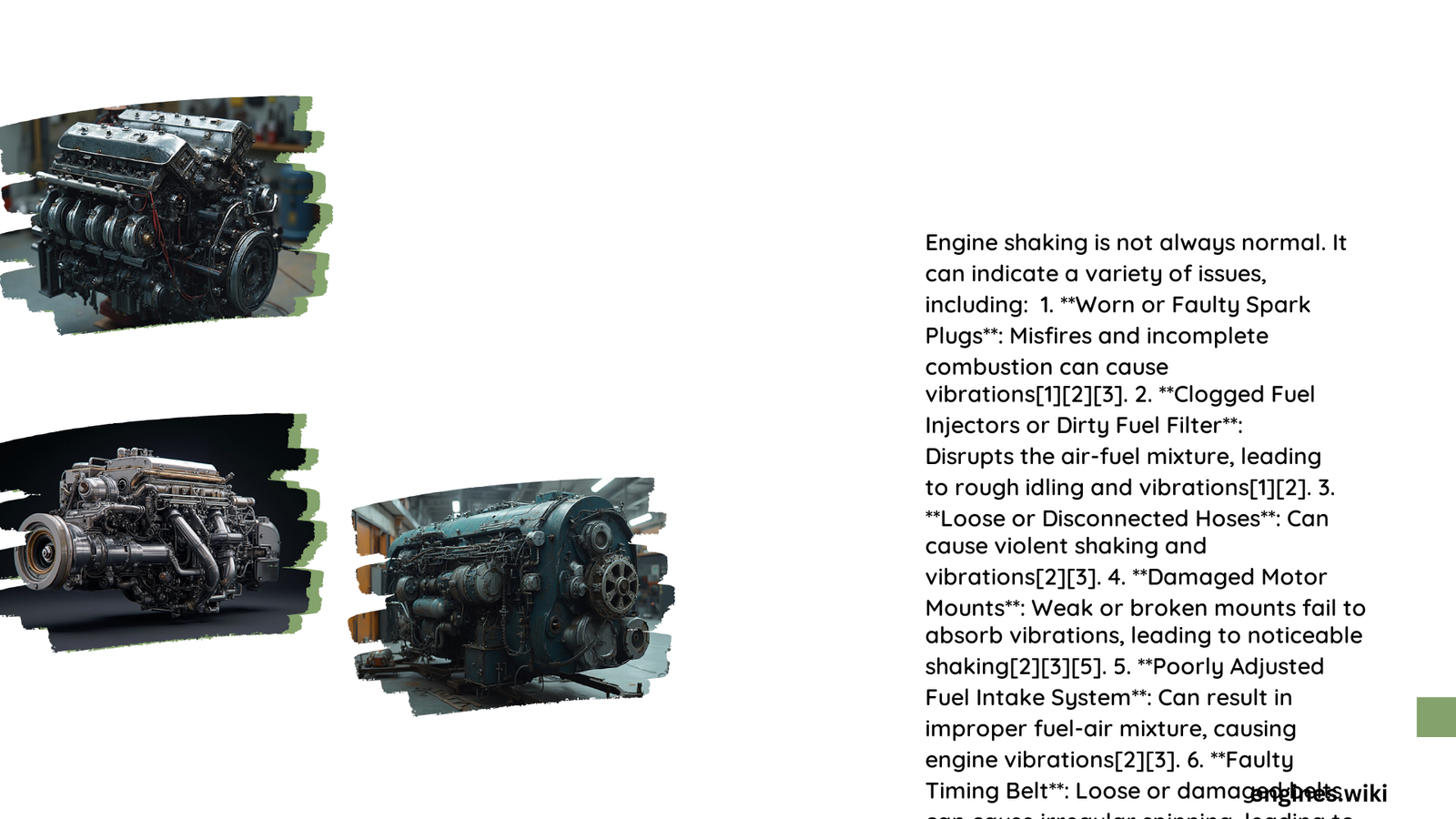Engine shaking represents a critical mechanical warning signal that demands immediate attention from vehicle owners. While some minimal vibration might occur during operation, persistent or intense engine tremors typically indicate underlying mechanical problems that could compromise vehicle performance, safety, and potentially lead to expensive repairs if left unaddressed. Understanding the nuanced causes and appropriate diagnostic approaches is essential for maintaining optimal engine functionality and preventing potential catastrophic failures.
What Causes Engine Shake?
Are Misfires Responsible for Engine Vibration?
Misfires frequently contribute to engine shaking, creating intermittent vibrations across specific RPM ranges. Key characteristics include:
- Frequency Range: 10-20 Hz vibration
- Amplitude: Noticeable cabin and visual engine movement
- Typical RPM Ranges: 1150, 1450, 1900, and 2100 RPM
| Misfire Type | Potential Symptoms | Diagnostic Difficulty |
|---|---|---|
| Cylinder Imbalance | Intermittent Shaking | Moderate |
| Spark Plug Failure | Consistent Vibration | Low |
| Fuel Injection Issue | Unpredictable Tremors | High |
Can Worn Engine Mounts Cause Vibration?
Deteriorated engine mounts represent another significant vibration source:
- Location-Specific Symptoms
- Vibrations most pronounced between 1200-2000 RPM
- Noticeable through steering wheel and seat
-
Potential transmission of excessive engine movement
-
Structural Implications
- Increased stress on surrounding components
- Potential accelerated wear on adjacent mechanical systems
What Are Unbalanced Component Risks?
Unbalanced mechanical components like flywheels or crankshafts can generate substantial vibrations:
- Diagnostic Indicators
- More pronounced at lower RPMs
- Potential smoothing at higher engine speeds
- Audible low-frequency shuddering
How Dangerous Is Engine Shaking?

Will Ignoring Vibrations Lead to Expensive Repairs?
Neglecting engine shaking can result in significant financial consequences:
- Potential Repair Costs
- Engine Mount Replacement: $200 – $1,000
- Crankshaft Repair: $1,000 – $5,000
- Catalytic Converter Replacement: $500 – $2,000
What Diagnostic Steps Should You Take?
Recommended Troubleshooting Techniques
- OBD-II Scanner Evaluation
- Check trouble codes
- Assess engine performance metrics
-
Time Required: 15-30 minutes
-
Vibration Analysis
- Measure frequency and amplitude
- Identify specific vibration characteristics
-
Time Required: 30-60 minutes
-
Comprehensive Visual Inspection
- Examine engine mounts
- Check component integrity
- Time Required: 30-60 minutes
Expert Recommendations
How Can You Prevent Engine Shaking?
- Regular maintenance
- Timely component replacement
- Professional diagnostic assessments
- Immediate investigation of unusual vibrations
Conclusion
Engine shaking is not normal and requires prompt professional evaluation. While minor vibrations might seem insignificant, they often signal potentially serious mechanical issues that could compromise vehicle safety and performance.
